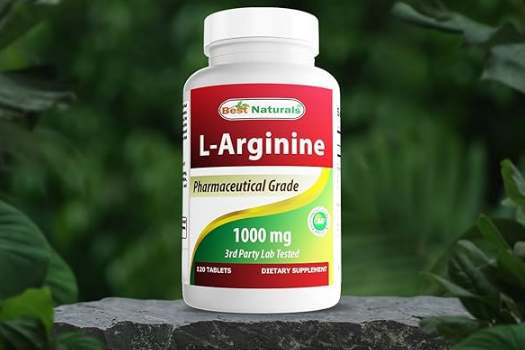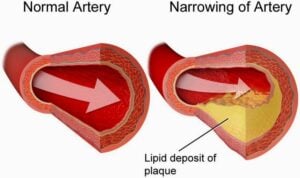What Did This New Study Explore?
Researchers wanted to understand whether arginine, a naturally occurring amino acid, could slow or reduce the buildup of amyloid-β — one of the hallmark proteins involved in Alzheimer’s disease. In the lab, they tested arginine in two ways:
- In test-tube experiments, observing how Aβ behaves when exposed to arginine.
- In animal models, including a specialized mouse strain that naturally develops Alzheimer’s-like changes as it ages.
Their goal was simple: Does oral arginine meaningfully reduce harmful Aβ buildup?
What the Researchers Found
Across both lab and animal settings, the results were striking:
Amazon: Prevent Alzheimer’s / Dementia
- Arginine Supplements
- Organic Turmeric Powder
- Omega 3 Supplements
- Diet & Alzheimer’s
- Prevention Guides
- Turmeric Curcumin Supplement
FREE! Weekly Diet Tips:
- Arginine slowed Aβ aggregation.
In controlled lab experiments, the more arginine present, the less Aβ clumped together. - Arginine reduced Aβ plaque formation in mice.
Mice receiving oral arginine showed:- Fewer amyloid plaques
- Lower levels of insoluble Aβ42
- Less inflammation in the brain
- Behavioral improvements emerged.
Mice treated with arginine performed better on memory-related tasks compared to untreated mice.
In short, this nutrient didn’t just change lab chemistry — it also changed the animals’ brains and behavior in meaningful ways.
Why This Matters to Alzheimer’s Care
For caregivers and professionals, this kind of research is encouraging because it points to a potential future treatment strategy that is:
- Simple (an oral supplement)
- Inexpensive
- Widely accessible
If a safe, common nutrient could reduce Aβ buildup or inflammation in humans, even modestly, it might eventually become part of a supportive care strategy.
But it is early. Very early.
What Can’t We Conclude Yet?
This study gives early hope — not clinical guidance. Here’s what it does not show:
- It does not prove that arginine helps people with Alzheimer’s.
- It does not confirm memory benefits in humans.
- It does not tell us the right dose, timing, or long-term safety for people with dementia.
- It does not show whether arginine works alongside approved Alzheimer’s treatments.
Translation from animal success to human success is notoriously difficult. Many Alzheimer’s therapies that work in mice do not translate to people.
Practical Takeaways for You
Even so, this study offers several helpful insights:
- Research is moving forward — often in surprising ways.
- Inflammation and Aβ buildup remain central targets for future therapies.
- Arginine shows promise, but only as a research finding, not a recommended supplement.
- Any supplement should only be started with medical guidance, especially for adults with dementia who may have multiple conditions or medications.
If someone you care for asks whether they should “start taking arginine,” the safest answer is:
“Interesting early research, but human trials are needed. Let’s ask the doctor first.”
What Comes Next in the Research World?
Scientists will now need to explore:
- Controlled human clinical trials
- Optimal dosing and safety
- Whether the benefits apply to MCI or early Alzheimer’s, when amyloid-related therapies work best
- How arginine interacts with approved medications such as Leqembi or Aduhelm
The next few years may bring clarity — and possibly a new way to support brain health.
A Final Word of Hope
Every caregiver deserves reasons to feel encouraged. Studies like this remind us that Alzheimer’s research is alive, innovative and searching for solutions that are safer, easier, and more accessible. Even though practical treatments may still be years away, this path of research offers genuine promise — and hope worth holding onto.
- Small actions matter. Gentle routines — meals, music, walks — help stabilize daily rhythms.
- The brain can still respond. Even in Alzheimer’s, new research continues to show areas where the brain can adapt and recover.
- Calm creates clarity. A few minutes of quiet or soothing music can ease late-day stress and confusion.
- Your presence is powerful. No research discovery can match the comfort you provide. It truly makes a difference.
- Science is moving forward. Every new finding — even in early research — adds another ray of hope for future care.











